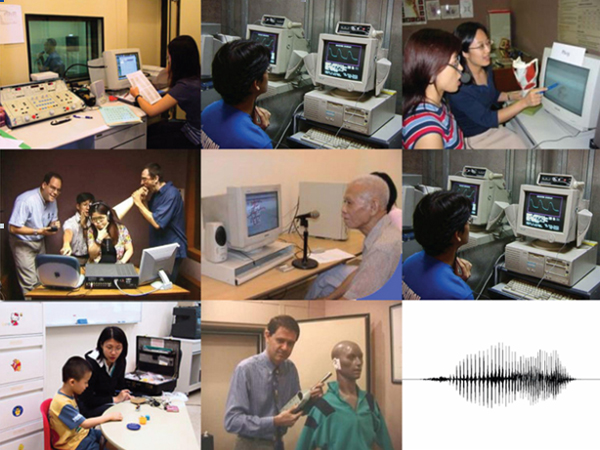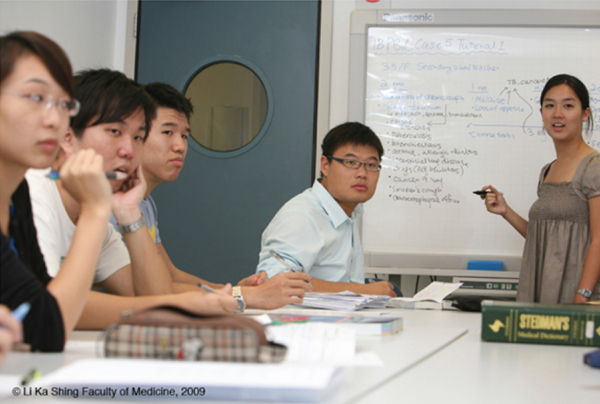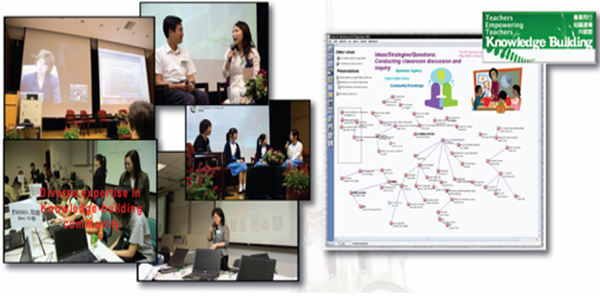Projects (2008-2012)
Interdisciplinary Projects (2008-2012)
SRT builds on members’ existing strengths, featured by several existing major projects In addition, a number of new projects in Science of Learning are currently undertaken by SRT members. These interdisciplinary projects, led by the HKU researchers, help contribute to the advancement of research frontiers in Learning Sciences and related areas.
Motor Learning
- Project title: The Use of Analogy in Learning a Speech Intonation Task
- Key project members: Mr. Andy Tse (Science of Learning Type B Student), Prof. Rich Masters (Institute of Human Performance), Dr. Estella Ma and Prof. Tara Whitehill (Speech and Hearing Sciences, Faculty of Education).
- Project goal: Its goal is to compare the effectiveness of implicit (analogy) and explicit approaches to learning a speech motor task: reduced pitch variability.
- Contribution to interdisciplinary research: The results of this study will provide evidence for the learning of a specific speech motor task. The results will have clinical implications, for best-practice in evidence-based intervention for individuals with disturbed intonation, such as Parkinson disease, cerebral palsy, and other neurological conditions.

Engineering Education
Project One
- Project title: Project-Based Learning in Engineering: Impact on All-Round Development of Hong Kong Students
- Project members: Dr. Alfred Yu (Engineering) and Dr. Cecilia Chan (CETL)
- Project goal: to investigate the effects and value of project-based learning in providing both technical and soft-skill training for Hong Kong engineering students.
Project Two
- Project title: Engineering Epistemology and Student Understanding: Tackling Novel Problems about Internet Security with Zero Day Attacks
- Project members: Dr. Rosanna Yuen-Yan Chan (Education) and Dr. Robin Adams (School of Engineering Education, Purdue University, US)
- Project goal: to investigate student epistemological development and domain understanding, and examines how engineering undergraduates learn about internet security.
- Contribution to interdisciplinary research These two projects are interdisciplinary research work that integrates concepts and methodologies from the education and Engineering disciplines.

Medical Education
- Project title: Effects of Video Triggers on Problem-Based Learning Process
- Project members: Dr. Lap Ki Chan (Medicine), Dr. Jingyan Lu (Education) and Prof Sau-Man Mary Ip (Medicine)
- Project goal: to examine and compare video-triggered problem-based learning (PBL) and paper-triggered PBL in order to determine the difference in the time spent on each PBL step and the depth of thinking in these steps.
- Contribution to interdisciplinary research: This is an interdisciplinary collaboration between education and medicine, in which a popular research topic, PBL in medical education, is examined from learning sciences perspective enhanced with technology. Project leaders also explore ways of how interdisciplinary perspectives can inform student learning in medical education.

Technology-Enhanced Learning
- Project title: Technology-Supported Innovation and Knowledge-Building Teacher Community
- Project members: Dr. Carol Chan, Dr. Jan Van Aalst, and Prof. Nancy Law (Education), in collaboration with Prof. Marlene Scardamalia (University of Toronto, Canada)
- Project goal: To investigate how engaging teachers in knowledge-building inquiry supported with building-building principles and technology can transform teacher beliefs and practices to enhance student inquiry for sustained innovation.
- Contribution to interdisciplinary research: The project draws on the interdisciplinary perspective of Learning Sciences to examine and promote student and teacher learning for 21st century education. It brings together the expertise of learning scientists, psychologists, engineers, teachers, and policy markers to develop a knowledge-creation community to advance a new science of learning for educational innovation.



